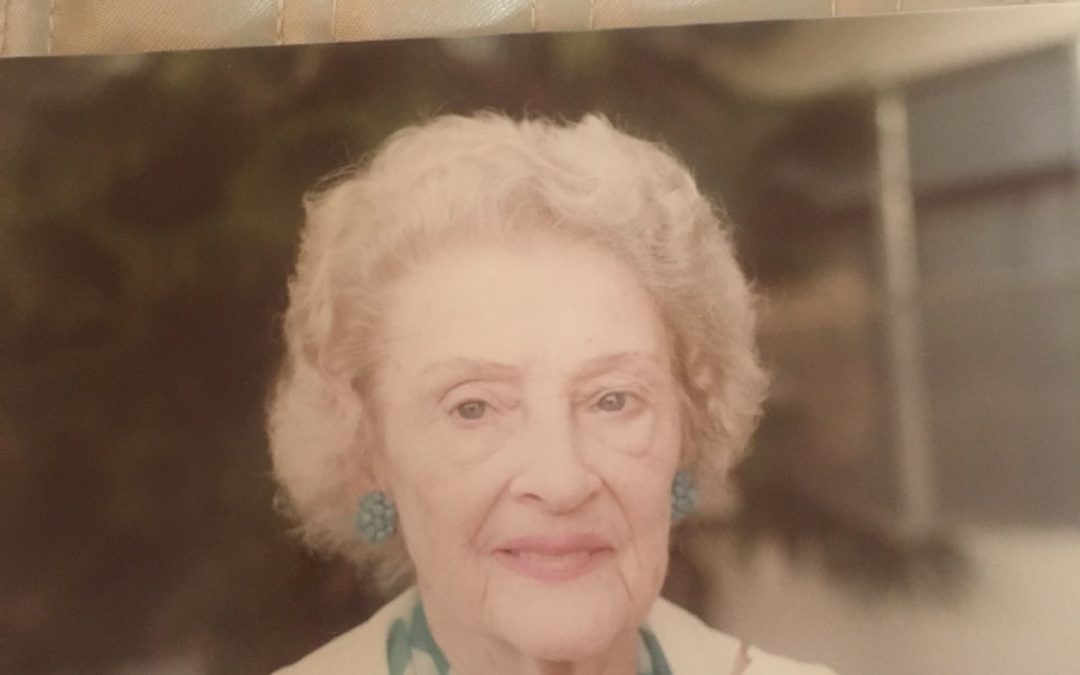
by Elizabeth Rudolph | Sep 1, 2021 | Inspiration, Legal Nurse Consulting
You want to do something more with your nursing skills, but you’re not sure what. You want to do something more with your life, but you’re not entirely sure what would make you happy (and earn you money). Who do you listen to?
Here’s the best advice I ever received: Do something. Take one step in the direction you want to go even if you’re unsure. Even if you’re not 100% positive. Just go. Go forward in the direction you BELIEVE will take you forward.
I owe this way of thinking to my grandmother of blessed memory. Gaga. She told me, after my mother passed away when I was quite young, “Throw your heart over the bar, and your body will follow”. Gaga was a sage. Gaga had street sense. Gaga had a beautiful heart. Gaga had what it took to survive in a post-Depression era world and beyond.
I loved Gaga.
Listen up nurses and Professional Legal Nurse Consultants: “Do something”.
Stop asking yourself how you’re going to accomplish the task. DO the task.
The “why” is more important than the “how”. You can ask others “how” to accomplish your dreams, your goals, your end-game. But, you have to know “why” you want it to begin with.There are so many temptations out there. Distractions. People, or things, that will take you off course. Stay the course.
It’ll become more clear. Don’t look back. Look forward in the direction you want to go.
Let’s look at this example. You’re a Registered Nurse. You graduated nursing school which was no small feat. Then, you took and passed the National Boards and you’re licensed. That’s another huge accomplishment. But, you want to do something more. Get your PROFESSIONAL LEGAL NURSE CONSULTANT (PLNC) CERTIFICATION!!
I did. I’m so happy I went further in my career AND used my nursing skills to achieve it. You can, too!
YOU can fast track your nursing career. You can combine nursing with the law.
You’re already reading medical records. Earn money doing it as a Professional Legal Nurse Consultant.
No matter what you want to accomplish, you need to heed Gaga’s advice. Take the step. Stop holding your own self back. There’re are plenty of people out there who’ll hold you back. People who don’t want change, and certainly don’t want you to change.
Keeping the status quo must seem easier, but it’s not. You’re yearning for more. You deserve more.
If you stay doing what you’re doing, you definitely will NOT attain your dreams. Step out a tiny bit and reap the rewards.
I did. You can. Take one tiny step.
Stop telling yourself “I can’t” and tell yourself “I can”. You can do one thing right now to advance your career.
Others have done it. You can, too.
What’s the best advice I ever received? Thanks to Gaga, I’m doing right now. I’m “doing something” that I want and loving it.
Thank you, Gaga, for your wisdom, for your love, and being our special grandmother.
P.S. Let us know what you think.

by Elizabeth Rudolph | Aug 3, 2021 | Attorney Communication, Legal Nurse Consulting
Look no further. There’re all kinds of potential employers of Professional Legal Nurse Consultants (PLNC). You decide which employer is best for you and your lifestyle. That’s another added benefit of being certified as a Professional Legal Nurse Consultant!
TYPES OF EMPLOYERS
Work from home independently. If you are already holding down a job as a full-time nurse, and are looking for revenue to supplement your income, working independently from home is a great direction to go in because it affords you the luxury to create your own hours. An independent PLNC is an individual who has good organizational and time management skills.
Independent PLNCs usually work with attorneys and law firms. You determine your hourly billing rate. Remember, you’ll still have some nonbillable tasks such as bookkeeping and keeping your files up to date.
You might decide to work as a PLNC full-time. In that case, you’ll have other factors to consider such as purchasing health care insurance, perhaps employing others such as a virtual assistant, and increase in equipment costs.
Insurance companies. PLNCs working for insurance companies usually work for claims representatives or adjusters. They work in concert with the adjuster or claims representative. They also work with an attorney hired by the insurance company to litigate a particular case. Many insurance companies look for nurses who have been certified and/or have experience reviewing medical records.
Law Firms. A PLNC working for a law firm will work with attorneys in various types of cases related to healthcare issues such as: personal injury and medical malpractice. The PLNc can either be employed by or contract with the law firm firm. As an employee, often you’ll have benefits such as health insurance, sick days and annual days. As an independent contractor, you will provide these yourself but often there’s more flexibility in your hours.
Healthcare Systems. Many PLNCs choose to work for healthcare systems or hospitals, which is similar to working for an insurance company. You may be called upon to work directly with the company’s risk manager or compliance departments, providing similar support as you would at an insurance company. Usually, the benefits and salary would also be similar to being employed at a law firm or insurance company.
Corporate Entities. As a PLNC working for a large or medium-sized corporation, you may provide the corporation with assistance related to workers’ compensation and other legal issues. You might choose to work as an independent consultant in this setting or potentially be employed by the company.
Government. You may choose to work on the local, state, or federal level as a PLNC in government. Most of this work will involve investigations and working with governing boards of a particular agency. These agencies could include state universities, correctional facilities, clinics, commissions, boards, and governmental agencies.
There’re so many options out there for Professional Legal Nurse Consultants. You might decide to try one or try them all to decide what fits your personality and lifestyle. It’s up to you. As my grandmother, of loving memory, said “the world is your oyster!”.
P.S. What type of PLNC job suits you?

by Elizabeth Rudolph | Jun 29, 2021 | Legal Nurse Consulting, Marketing
Your resume is your opportunity to shine. This means you should showcase your talents. It’s not being boastful when you put your truth out there. Every Professional Legal Nurse Consultant (PLNC) needs to do this!
Let’s go over 11 tips to make your resume STAND OUT!
Gear your resume to the job. This means to be strategic. You’re not going to use the same resume for every job to which you apply. You’re going to emphasize the important items to show how you’re the perfect fit for the job!
Use a readable format. Do not use more than two different fonts. Usually, Times New Roman, is used for resumes. In all cases, be sure it’s 12 point font.
Contact information needs to be easily accessible. After all, you want the attorneys to reach you for your Professional Legal Nurse Consultant (PLNC) services. Make it EASY for them to find you. Put all your contact information at the top and center it.
For example:
First and Last Name (if you go by a different name, include it)
Credentials (highest degree to lowest degree and your PLNC Certification)
Address (or even just your city and state)
Phone number (provide the phone you’re really going to answer)
Email (make sure it sounds professional)
Don’t include a statement of objectives or summary paragraph. Your cover letter is the place for that. Your resume is the place for you to be concise. Nobody wants to read a paragraph in a resume.
Use bullet points judiciously. Bullet points help guide the reader. Not everything needs bullet points. Just be sure you eliminate lengthy paragraphs.
Your education comes first. After your contact information, of course. Put your highest education achieved on top and work your way down. Be sure you include your degree obtained by spelling it out. Don’t assume the reader will know the initials of your degree.
All dates should be flush right. Dates are not necessarily critical but need to be included so put them to the right. That way, the information you put on the left side of the page will stand out.
Employment listed in reverse chronological order. Your most recent employment should be listed first and subsequent employment listed in descending order.
For example:
City Medical Center, Memphis, TN 2018-present
Staff Nurse (R.N.)
• Provide nursing care to patients in a 20 bed Medical Intensive Care unit
• Include your job duties here
Certifications are listed separately. Your Professional Legal Nurse Consultant (PLNC) Certification is listed under “Certifications”. You want the reader to know you have obtained your PLNC Certification. Be sure you don’t just list it under “Education” where it’ll get lost.
If you can’t keep your resume to one page, put a header on each page. This means you put your name and page number on each page. If the pages get separated, the reader will still know the pages belong to your resume.
Licensure is important. Be sure you have a separate line item for “Licensure”. You might be licensed as a “Registered Nurse” in a compact state or in more than one state. Be sure you list this.
Your overarching strategy is to keep your resume glowing, straight forward, and easy to read. Your goal? To get the Professional Legal Nurse Consultant job.
P.S. Go over your resume and be sure you included our resume tips.

by Elizabeth Rudolph | Jun 22, 2021 | Legal Nurse Consulting, Legal Terminology
There are advantages and disadvantages in choosing how your Professional Legal Nurse Consultant (PLNC) business will be structured. You’ll need to choose one that best suits your needs. Here are four potential options: 1) Sole Proprietorship, 2) Limited Partnership, 3) Corporation, and 4) Limited Liability Corporation (LLC). Many states have websites that’ll take you through the steps to register your new business. They may also instruct you how to register your business on the county, or municipal, level as well.
While this is an overview of business structures, this is not a substitute for contacting an attorney and tax advisor, as to which type of business structure best fits your needs. Please contact an attorney and tax advisor so you select the best business structure for your PLNC business!
Four Types of Business Structures for the Professional Legal Nurse Consultant:
Sole Proprietorship
This is the most basic and most popular structure for most PLNC businesses. It’s not as heavily regulated as other structures and you, as the owner, assume all legal and tax responsibilities. The biggest advantage to being a sole proprietor is you have total control over every aspect of your business. Plus, you have less expenses starting out. Remember, that when setting up a sole proprietorship all your business and personal assets are at risk and that any judgments or lawsuits against your business could affect your personal assets as well.
The Limited Partnership
The limited partnership is a cross between a traditional partnership and a corporation. This form of partnership might be good when you have people who are simply interested in investing in your PLNC business but want limited liability and no real control over the business. Limited partnerships must endure more stringent regulations on the state level than a sole proprietorship. There are regulations, including the Uniform Limited Partnership Act, which govern the formation and operation of a Limited Partnership.
The Corporation
A corporation is an entity that’s created by writing and filing your Articles of Incorporation with the Secretary of State (at your state level). A corporation is regulated by the state and includes items such as Articles of Incorporation and Bylaws. These bylaws outline your corporation’s structure including a summary of what your organization does, the number of its shareholders or board of directors, and officers (if any). Corporations are more complex than either a limited partnership or sole proprietorship and are subject to more regulation by the state. Some advantages to corporations include that a shareholder can sell or give away their stock (unless this is restricted in your corporations bylaws) and some tax advantages as well. There’s a certain level of the loss of control because of the organizational structure (i.e. board of directors, officers), regulation and formalities in setting up a corporation, and higher state fees.
The Limited Liability Company (LLC)
A Limited Liability Company (LLC) is a cross between a limited partnership and a corporation. In setting up this type of business, you might have certain tax advantages. Of course, you should consider purchasing a malpractice insurance policy no matter which business structure you form.
An attorney and a qualified tax advisor can guide you through the various differences in tax law for each of these business structures. Don’t let it to deter you from achieving your dream!
You might need a business license, or other regulatory license. Be sure you check with your attorney and a tax advisor so that you select the right entity for you.
P.S. What business structure did you, or will you, choose for your PLNC business?

by Elizabeth Rudolph | Jun 17, 2021 | Legal Nurse Consulting, Marketing
Are you a Professional Legal Nurse Consultant (PLNC) or do you want to become one? Either way, the process of helping each other is within us all. We just need to activate it.
Let’s look at Mentoring from both sides: Being the mentor or being the mentee.
Mentor: someone you trust and value their experience.
Mentee: someone who receives guidance from a mentor.
Now, let’s apply these in our everyday life whether or not you’re a PLNC or plan to become one.
Mentor: As a Professional Legal Nurse Consultant, it’s important to have a mentor. Someone who has walked the path before you and is willing to guide you. Questions come up not just at the beginning of your PLNC practice, but along the way. It’s essential to have a mentor you can trust.
A mentoring relationship can come in all different shapes and sizes. For example, here at Jurex Center for Legal Nurse Consultants, EVERY PLNC Certification Course comes with mentoring. When you annually renew your PLNC Certification, you continue to keep the mentoring program.
Why is mentoring so helpful? The legal professional world is full of new concepts and experiences. As a PLNC, you’re expected to navigate these. Being able to ask your mentor for guidance can help you grow and develop your Professional Legal Nurse Consultant practice.
For example, the attorney whom you are working might ask you to “draft some interrogatories”. You can easily ask your mentor, what this means. Your mentor will be able to explain this in easy-to-understand language. Then, you’ll be in a great position to fulfill the attorney’s assignment.
Mentee: Being a good mentee is as important as being a good mentor. Utilize the mentoring program so that you can become the best version of your PLNC self.
It’s been said “when the student is ready the teacher will appear”, has been attributed to Buddha and perhaps others. Take this quote to heart.
You want to be a responsible mentee. One who values your mentor’s time and attention. Remember, being a mentor is a volunteer job. So, being respectful and organized will infinitely enhance your mentor-mentee relationship.
There are formal as well as informal mentors out there. Find one that best fits your needs. Be sure you follow through. It’s a two way street.
You attorney can also serve as your mentor. Attorneys are used to working with and helping others. Use your observation skills we were taught as a nurse. Watch, look, and listen to see how others interact and model your own behavior accordingly.
It’s also helpful to join the Professional Legal Nurse Consultant Community Facebook Group at https://www.facebook.com/groups/professionallegalnurseconsultantcommunity. Here you can learn and interact with others who have successfully traveled the same path.
Whether you choose to be a mentor or a mentee, or both, it’s up to you. You make the difference. You show up. You are prepared. You get the most you can out of your mentoring relationship. In other words, mentoring is what you make it!
P.S. What’s been your best mentoring experience?

by Elizabeth Rudolph | May 19, 2021 | Legal Nurse Consulting
One thing is for sure. Technology in nursing care is here to stay. It’ll continue to advance. We, as Professional Legal Nurse Consultants (PLNC), MUST stay ahead of the curve. How?
Read this blog post. Read all our blog posts.
Stay on top of technology in nursing:
Electronic Health Record (EHR) is also called the Electronic Medical Record (EMR). Medical records require software programs and hardware to make them work. Each facility or health care provider may use a different software and hardware. Get familiar with them. It’ll unlock a world of information.
Robotics are used in nursing care more and more. Whether the case you’re reviewing occurred in a long term care facility or medical-surgical unit, you could see medications being administered by robots, or not.
Telehealth has blossomed since the beginning of the coronavirus pandemic. Without the benefit of live interaction, many conditions or issues may go undetected. Know this whenever you’re reviewing telehealth medical records.
Mobile phones are used to “look up” diagnoses and treatments. Where did the nurse, or the health care provider, find the information? What exactly was conveyed to the patient or caregiver? It’s imperative that you find out.
Use of apps. There’re all kinds of apps out there. You need to know which ones were used by the health care provider in question. Ask your attorney to find out this critical information.
Monitoring patients. Portable monitors can be used to let the nurse know of significant events. Even vital signs can be monitored this way.
Potential reduction in errors. This requires the correct input of information, but usually thereafter the information is correct. Watch for computer “glitches”, as this happens more often than one would think.
Communication among health care providers. Ear-inserted devices or headsets are often used to transmit information, such as lab test results, quickly. Check to see if these audible transmissions have a recorded backup.
Use of barcodes for scanning. Just like those used on groceries, the use of barcodes is widespread in health care delivery. Once scanned, the nurse can access all kinds of patient information right at the bedside. This is especially useful with medications.
Nursing is still a human profession requiring interactive skills. The incorporation of technology into nursing practice will continue to advance and iterate. It’s essential to be on top of how it’s changing the delivery of nursing care.
The most significant impact will be felt in effective communication and tactile interactions. These are generally ones that require some degree of human to human contact.
As a Professional Legal Nurse Consultant, continuing to be on top of technology used in the delivery of nursing care will help hone your merit review skills. Read, watch, and listen so you can understand technology. It changes and evolves, just like you do.
Nursing as a profession will continue to change. Technology will advance nursing care. And you will advance the nursing profession.
P.S. What technology do you use in your nursing practice? Let’s hear from you.






